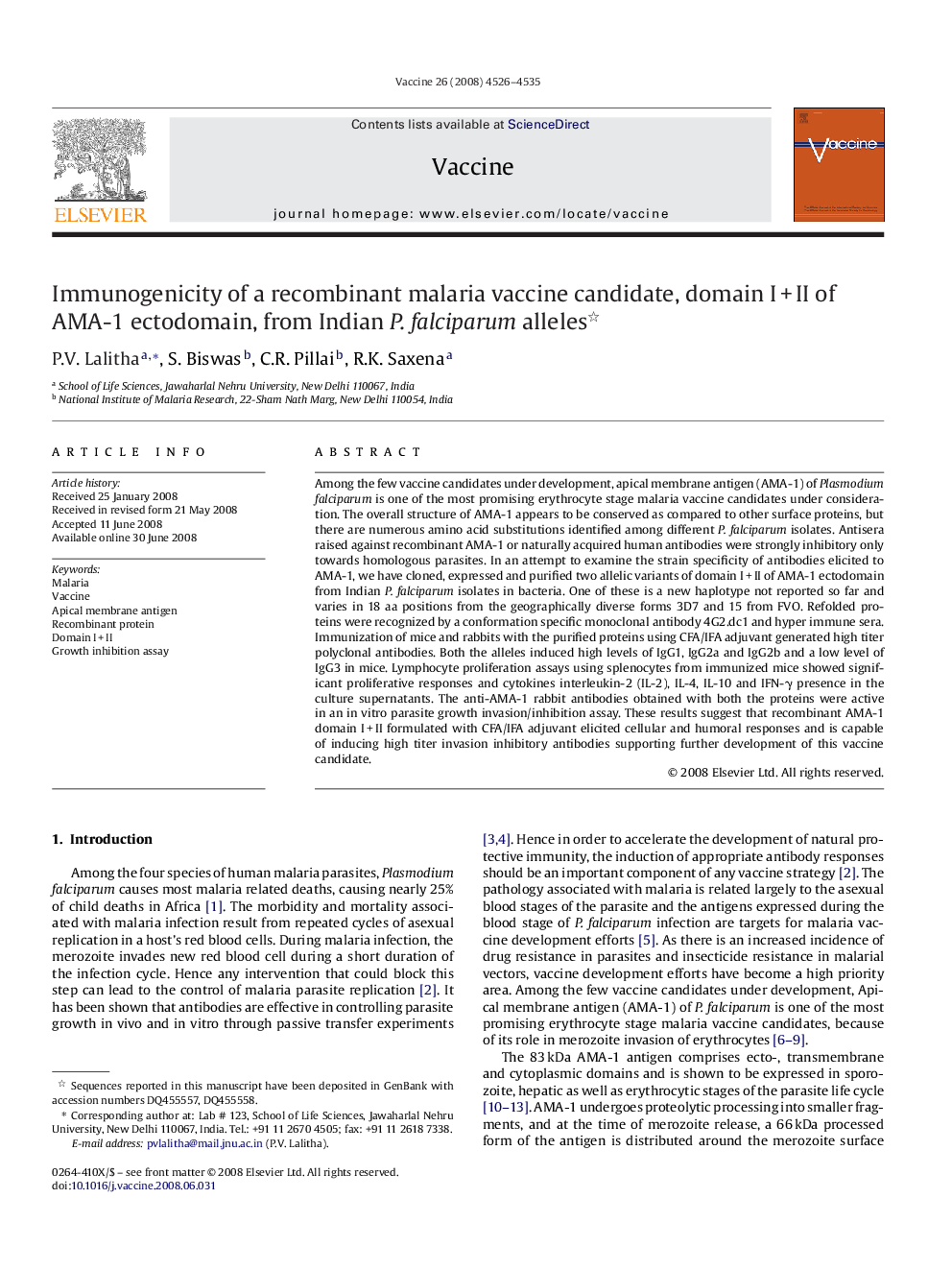| Article ID | Journal | Published Year | Pages | File Type |
|---|---|---|---|---|
| 2407352 | Vaccine | 2008 | 10 Pages |
Among the few vaccine candidates under development, apical membrane antigen (AMA-1) of Plasmodium falciparum is one of the most promising erythrocyte stage malaria vaccine candidates under consideration. The overall structure of AMA-1 appears to be conserved as compared to other surface proteins, but there are numerous amino acid substitutions identified among different P. falciparum isolates. Antisera raised against recombinant AMA-1 or naturally acquired human antibodies were strongly inhibitory only towards homologous parasites. In an attempt to examine the strain specificity of antibodies elicited to AMA-1, we have cloned, expressed and purified two allelic variants of domain I + II of AMA-1 ectodomain from Indian P. falciparum isolates in bacteria. One of these is a new haplotype not reported so far and varies in 18 aa positions from the geographically diverse forms 3D7 and 15 from FVO. Refolded proteins were recognized by a conformation specific monoclonal antibody 4G2.dc1 and hyper immune sera. Immunization of mice and rabbits with the purified proteins using CFA/IFA adjuvant generated high titer polyclonal antibodies. Both the alleles induced high levels of IgG1, IgG2a and IgG2b and a low level of IgG3 in mice. Lymphocyte proliferation assays using splenocytes from immunized mice showed significant proliferative responses and cytokines interleukin-2 (IL-2), IL-4, IL-10 and IFN-γ presence in the culture supernatants. The anti-AMA-1 rabbit antibodies obtained with both the proteins were active in an in vitro parasite growth invasion/inhibition assay. These results suggest that recombinant AMA-1 domain I + II formulated with CFA/IFA adjuvant elicited cellular and humoral responses and is capable of inducing high titer invasion inhibitory antibodies supporting further development of this vaccine candidate.
